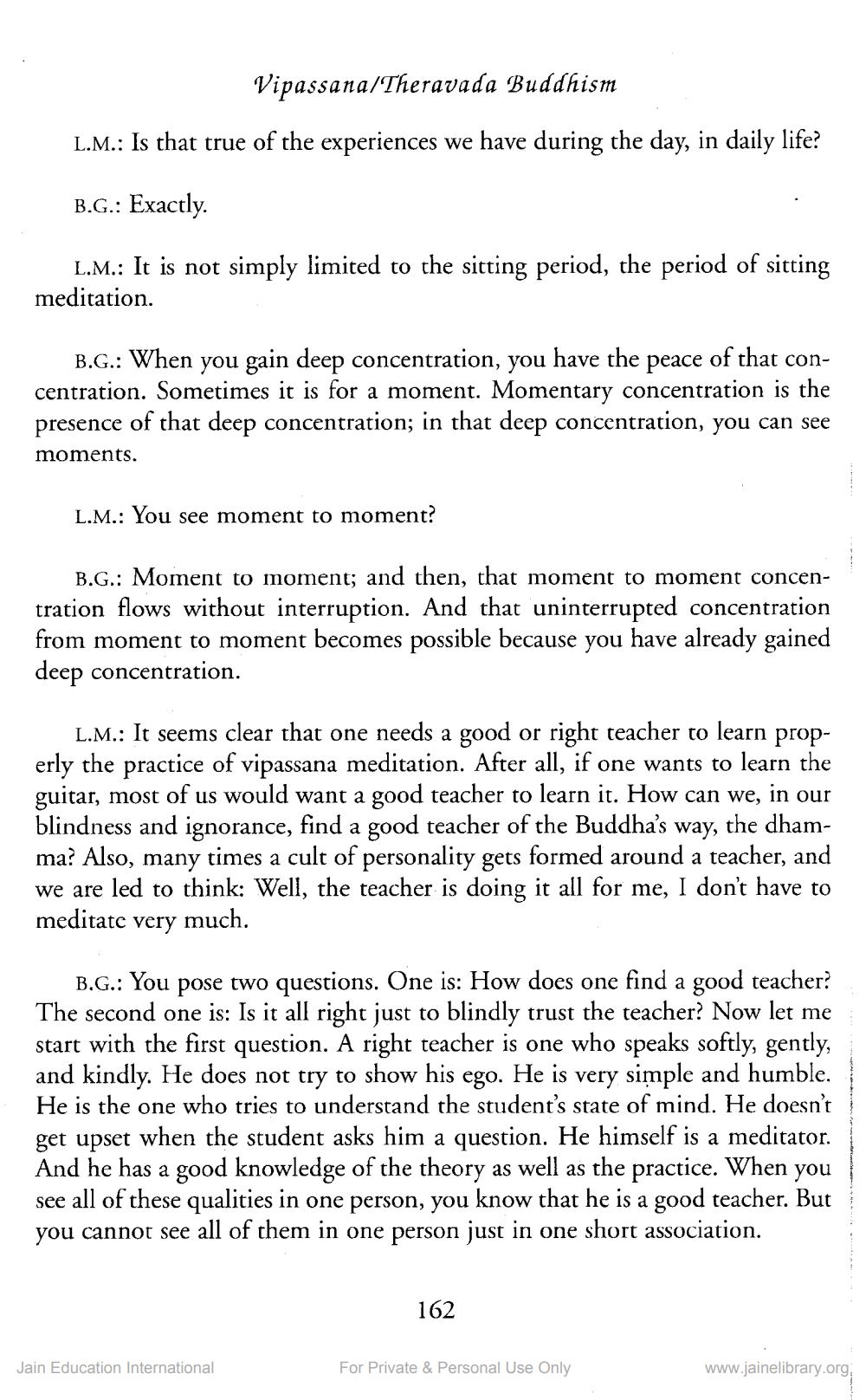________________
Vipassana/Theravada Buddhism
L.M.: Is that true of the experiences we have during the day, in daily life?
B.G.: Exactly
L.M.: It is not simply limited to the sitting period, the period of sitting meditation.
B.G.: When you gain deep concentration, you have the peace of that concentration. Sometimes it is for a moment. Momentary concentration is the presence of that deep concentration; in that deep concentration, you can see moments.
L.M.: You see moment to moment?
B.G.: Moment to moment; and then, that moment to moment concentration flows without interruption. And that uninterrupted concentration from moment to moment becomes possible because you have already gained deep concentration.
L.M.: It seems clear that one needs a good or right teacher to learn properly the practice of vipassana meditation. After all, if one wants to learn the guitar, most of us would want a good teacher to learn it. How can we, in our blindness and ignorance, find a good teacher of the Buddha's way, the dhamma? Also, many times a cult of personality gets formed around a teacher, and we are led to think: Well, the teacher is doing it all for me, I don't have to meditate very much.
B.G.: You pose two questions. One is: How does one find a good teacher? The second one is: Is it all right just to blindly trust the teacher? Now let me start with the first question. A right teacher is one who speaks softly, gently, and kindly. He does not try to show his ego. He is very simple and humble, He is the one who tries to understand the student's state of mind. He doesn't get upset when the student asks him a question. He himself is a meditator. And he has a good knowledge of the theory as well as the practice. When you see all of these qualities in one person, you know that he is a good teacher. But you cannot see all of them in one person just in one short association.
162
Jain Education International
For Private & Personal Use Only
www.jainelibrary.org




